As part of our learning curriculum, we offer a variety of self-study modules to support your learning in nourishing a culture of leadership. These programs include a combination of:
- Self-study via video tutorials. These videos may have accompanying workbooks or other resources. They always include online access to the videos as well as downloadable audio and video files for easy offline access.
- Mentoring circles for ongoing learning retention. As with all of our learning programs, each self-study program includes real-time online mentoring circles to support your learning retention and application.
You can learn more about what is included in each self-study program by reading about it at a link below.
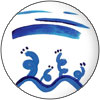
Achieving and Regenerating Organizational Health and Balance
Imagine knowing a simple way to diagnose the health and balance (well being) of your team or organization, and applying this knowledge on a regular basis. Yes, you can apply this knowledge from within the organization to develop baseline data about health and balance (wellness), and monitor progress over time. Further, the best plans for regenerating the health and balance of an organization are those that involve the people of the organization in the development of the plan. You will be equipped to help your people develop a regeneration plan as well as to develop plans for annual adjustments back to health and balance as needed. This leadership development and capacity development is valuable for helping your organization maintain agility, flexibility and resiliency. All of which is needed for thriving in today's performance environment of constant change.
If you want to develop a culture of leadership, this knowledge is essential.
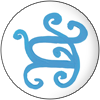 Beliefs for Creating a Culture of Leadership
Beliefs for Creating a Culture of Leadership
Learn about the impact of underlying beliefs about organizations, held by leaders and held by the people within an organization. These underlying beliefs inform the leadership paradigm in your organization.
The leadership paradigm desired for a performance environment of constant change is one supporting agility, flexibility, gender equality, innovation, solution focus, creativity, responsibility, accountability, and productive use of authority. In short, the elements necessary to thrive in today’s local and global economies.
This self-study program is intended to provide guidance to explore and develop an understanding of the new leadership paradigm 'leading so people will lead'.
Five beliefs we believe impact a culture of leadership will be presented for your consideration. Leaders who determine that they want to make the shift to the new leadership paradigm also need to consider making the organization-wide shift to nourishing a culture of leadership.
You will have the opportunity to make sense for yourself about the leadership paradigm that is best for you.
Learn how to use what is learned to lead important conversations in their organizations. These conversations about leadership paradigm can be used for conflict prevention. We will show you how.
>> Learn More (this self-study module is part of the Next Level Leadership learning track)
 Leadership Competencies for Thriving in Change
Leadership Competencies for Thriving in Change
Imagine enhancing your leadership competencies to lead your own life as well as leading a team or organization in rapidly changing times!
We live in a world of rapid-fire change. Gone are the days of slow and planned organizational change, with plenty of time once the change is enacted to stabilize the organization, work within the new state, and then plan for the next intentional organizational change. Between the ever-changing political landscape, technology increasing faster than it can be implemented, and information being generated faster than ever before, constant change is the new normal.
We invite you to learn, explore and strengthen your knowledge and capacity of the leadership competencies you need to thrive in constant change.
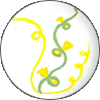 Organizational Transformation Basics for Success
Organizational Transformation Basics for Success
Join us in an engaging online program to learn more about organizational transformation, what works, what doesn’t work, and how to position your change effort to be one that is successful. A really good first step before charging ahead involves having a framework for the larger scope of what you want to accomplish. This first step, as important as it is to success, is often overlooked and bypassed.
A really good way to develop your framework is to explore system change. One key emphasis of the workshop is to assist you to develop your own framework for the larger scope of what you want to accomplish. Via a facilitated process, you will be guided in the development of your framework, tied into your worldview about organizations. Your framework is going to be a practical, useful conceptual container for you as you undertake the change work that you want to accomplish.
 Path to Organizational Health and Balance
Path to Organizational Health and Balance
It is advantageous to step back and explore your foundational beliefs about an organization and its health and balance (organizational wellness). Whether you are embarking on some kind of organizational improvement project, restructuring, setting out to fix an organizational problem, or simply want to understand your organization's performance better, this learning program will be of benefit to you.
 Personal Boundaries...At Work
Personal Boundaries...At Work
Being clear about your personal boundaries before they are crossed is an important life skill. Clear and upheld boundaries help to build relationships that are healthy, mutually respectful, supportive and caring. When you find yourself in uncertain or stressful situations, your boundaries can help to guide you in making the best decisions that will help keep you on your path.
Working with personal boundaries is also an important skill in your professional life. Whether you are a consultant supporting people in organizations to work more effectively together or a leader working to create a positive work environment and achieve your business goals, working with the people's personal boundaries is a critical ingredient for achieving success. But it's an ingredient not often explored.
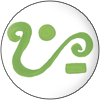
Whole Person Process Facilitation
Imagine knowing a simple-to-use multi-purpose method for leading highly participatory meetings. A meeting facilitated using Whole Person Process Facilitation (WPPF) includes meaningful conversations promotes improved communications, collaboration and cooperation. Using WPPF means that all adult learning styles are taken into consideration thus leaving no one behind. People are engaged. People contribute the best from the full spectrum of emotional, physical, spiritual and mental intelligences including their 'gut feeling', their intuitive intelligence.
This meeting method encourages your organization’s members to use all of their strengths in a highly effective way. The meeting produces tangible results towards your business goals and achieves maximum participation, inspired creativity, and the best solutions from the collective of individuals involved.
WPPF is simultaneously a facilitation method and a container for a variety of tools and processes. If you have tools and processes that you like and work for you, using them within a WPPF container enhances how those familiar tools and processes work.
Whole Person Process Facilitation (WPPF) was developed by Birgitt Williams and has been used in dozens of countries in the world and on every continent, with a twenty-year history of consistently exceptional results. Your meetings will be more efficient and effective. Your investment in holding meetings, when they are facilitated using WPPF, will have a significant return on investment.
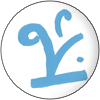 Working with Open Space Technology
Working with Open Space Technology
You are invited to learn a simple to use multi-purpose method for leading highly participatory meetings involving from 7 to 1000 people. These meetings produce tangible results towards your business goals and achieve maximum participation, inspired creativity, and the best solutions from the collective of individuals involved. Open Space Technology (OST) was developed by Harrison Owen of Maryland, USA and has been used in almost every country in the world, with a twenty-year history of consistently exceptional results. Learn the Genuine Contact way of working with OST to achieve the greatest benefit for the organization.
During an Open Space Technology meeting, participants experience a culture of leadership for the duration of the meeting. A meeting facilitated using Open Space Technology can be used as a catalyst to launch a culture of leadership in the daily life of the organization using the meeting as a shared experience from which to draw their knowledge of what is required in a culture of leadership. More importantly, having experienced the culture of leadership during the meeting, the people involved know that they can do it!
 Working with Stories for the Benefit of the Organization & Leadership
Working with Stories for the Benefit of the Organization & Leadership
This interactive, workshop is for you if you want to increase your skillfulness in working with the stories in an organization or community for the benefit of the organization and as a leadership advantage. Stories, told within the context of the organization, provide important information about what is perceived as working, and what is perceived as not working.


